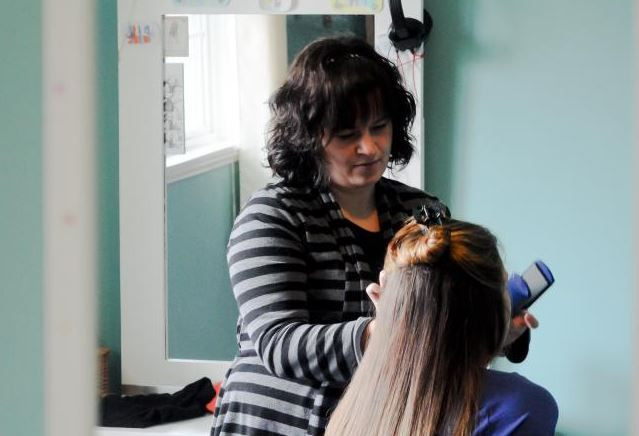Eating Disorders May Be Influenced By Mother-Daughter Relationships: What Mothers Should Not Say

Mothers should be very careful with the way they talk to their daughters about diet and weight, says a new study published in the journal Body Image.
Lead study author Erin. E Hillard, a developmental psychology doctoral student at the University of Notre Dame, worked with fellow students and faculty members to examine the effects a mother's diet encouragement had on their teen daughter's body image. Working with sixth grade girls and their mothers (following up when girls were in eighth grade), they examined the way mothers imparted encouragement and talked about personal weight concerns, as well as how this affected girls' "drive for thinness" and dieting behavior.
"Mothers' influence on their daughters is important for understanding girls' disordered eating and body dissatisfaction," Hillard and her co-authors explained in the study’s abstract. "Direct maternal encouragement of daughters to lose weight is linked to daughters' development of bulimic symptoms, and additional findings indicate that daughters whose mothers merely talk about dieting and body dissatisfaction are more likely to be diagnosed with an eating disorder."
The results showed the outcomes of mothers encouraging their daughters to lose weight were worse if mothers were not also discussing their own weight concerns. Without mothers discussing their weight, too, daughters were more at risk for developing an eating disorder based on their scores on measures for dieting behavior and thinness.
In a press release, Hillard acknowledged the overall study was more for mothers and what they should not talk about versus what they should. She finds this is especially true when she considered the daughters whose mothers were not engaging in either type of conversation — they experienced the best outcomes.
"Some may consider our findings surprising. It seems intuitive that given the negative outcomes associated with both of these mother behaviors separately, for daughters whose mothers engage in both behaviors the outcomes would be even worse," Hillard told Medical Daily by email. "However, daughters whose moms are encouraging them to diet, but not talking about their own weight concerns may feel more isolated, and thus worse about their bodies as a result. This is a finding that requires future research to fully explain."
We've seen some examples of this in the media. On an episode of Running Wild With Bear Grylls, Kate Winslet revealed when she was growing up, she never heard positive reinforcement about body image from the women in her life, which she said can be "very damaging because then you're programmed as a young woman to immediately scrutinize yourself and how you look."
"I stand in front of the mirror and say to Mia, 'We are so lucky we have a shape. We’re so lucky we’re curvy. We’re so lucky we’ve got good bums,'" Winslet added. "And she'll say, 'Mommy, I know, thank God.'"
In 2014, BuzzFeed's senior editor Arianna Rebolini published a personal essay on the site about her own and her mother's experience with bulimia. The two have a candid conversation not only about what they've gone through, but on what may have influenced the disordered behaviors and anxieties in the first place. Rebolini's mother, Linda, confesses it wasn't until she sat with her daughter in a rehabilitation program that she realized what people say about food and eating could be damaging.
Per Hillard, more research needs to be done, though she believes these findings begin to clear up what's otherwise a very complex issue.
She added: "They do shed light on the complexity of the issue of talking to children about their weight in ways that don't lead to poor health outcomes in the long run."
Source: Hillard EE, Gondoli DM, Corning AF, Morrissey RA. In it together: Mother talk of weight concerns moderates negative outcomes of encouragement to lose weight on daughter body dissatisfaction and disordered eating. Body Image. 2016.
Updated | Hillard responded to Medical Daily's request for comment.



























